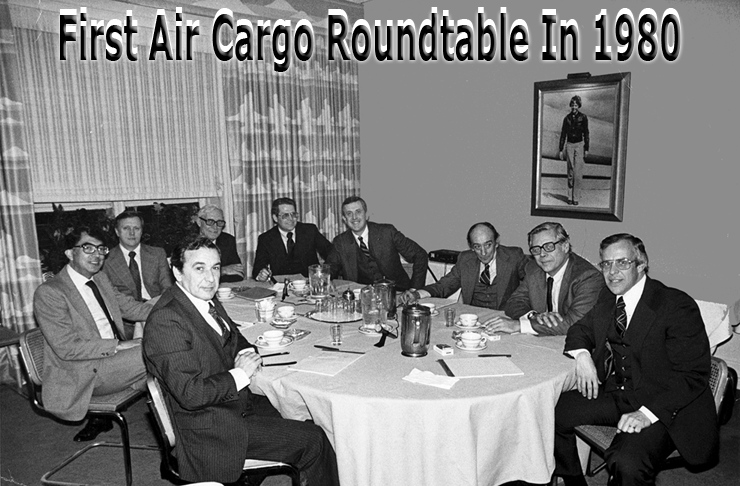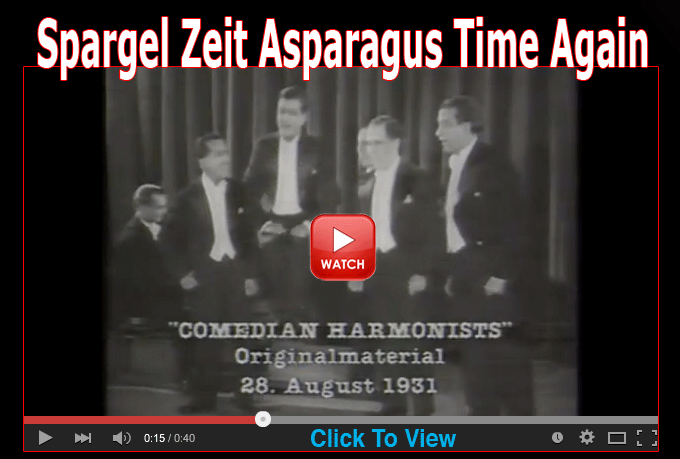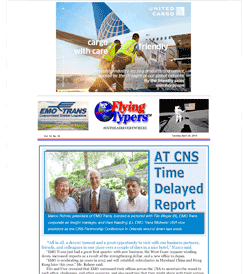| 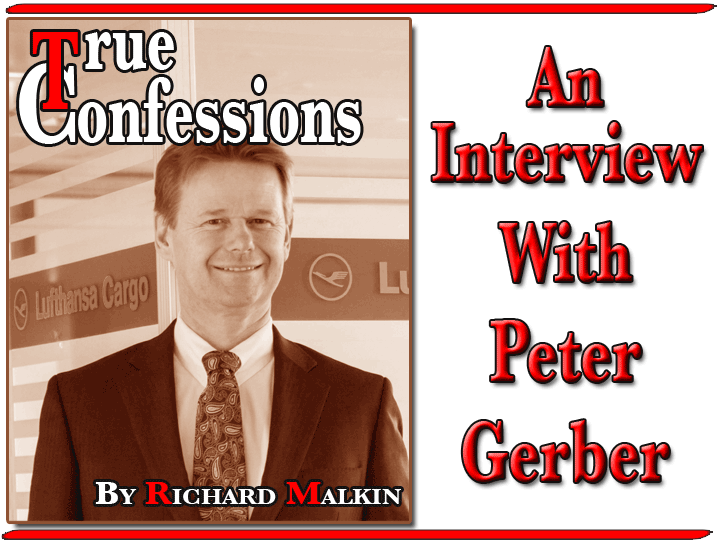
Peter Gerber
assured me that he has kerosene in his blood, which translated
to a simple though important fact: virtually the entire career
of the 51-year-old CEO of Lufthansa Cargo has been within the
Lufthansa Group. The kerosene apparently has turned out to be
an effective mix, and Gerber replied to cargo-related questions
without stumbling. He gave strong evidence of a tight fix on
world markets, and the various forces of competition—and
he had ideas. Was it vital that an aspirant spend their entire
career in cargo in order to reach the uppermost rung of the
ladder? Certainly not in Gerber’s experience, who maintained
that “the great thing about Lufthansa is that it is possible
to engage in completely different fields over and over again”—and
lead to a solid challenge. Admittedly, “cargo is truly
special.”
Asked for his outlook on the current
year, Gerber described it as “demanding and volatile,”
but there is some expectation of “a slight rise in demand
worldwide” and will compete to benefit from this. He expressed
optimism, and was preparing for the “benefits” in
terms of investment in services and quality.
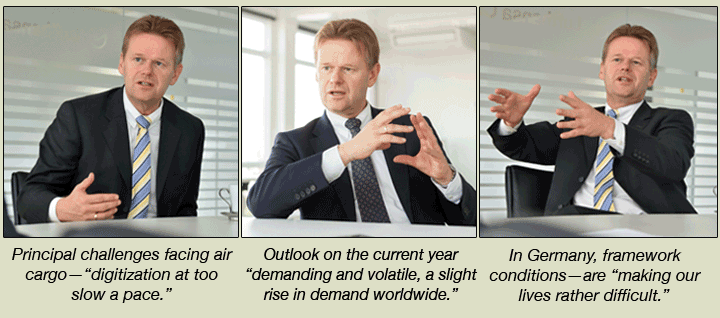
Are the levels of competition
in the world’s regional markets relatively stable, or
are some subject to volatility? Gerber declared that there were
“clear imbalances” between global regions. Some
countries, he said, used aviation as a “strategic weapon”
to enhance economic development. In Germany, framework conditions—restrictive
night flights bans and emissions trading, for instance—are
“making our lives rather difficult.” Speaking for
himself, Lufthansa Cargo’s chief stated that it is of
great importance to have a “level playing field,”
for the airline industry is global, which requires “level
framework conditions.”
At this point in the interview,
Gerber was asked to identify the principal challenges facing
air cargo’s forward movement. Gerber said:
“In
many cases, the industry is driving innovation and developments
such as the digitization of the most important processes at
too slow a pace. We need to become faster and, above all, cooperate
even better with other companies. And the rapidly expanding
presence of the Gulf carriers is definitely a major challenge,
“especially for the established airlines from Europe,
Asia, and the U.S.”
Gerber went on to point out capacities
that are “thrown” on the market, especially the
huge amount of belly capacity, impact heavily on the markets.
No longer is there a level playing field. He charged that “massive
state subsidies have led to” distortions of competition
“which should not continue in the long run.” He
was emphatic in calling for politicians to “step in to
ensure fair framework conditions.”
Narrowed to the reality of Gerber’s
top cargo office at the airline, he was asked what he considered
to be his foremost challenge. Addressing the query in terms
of a management team, he maintained that its uppermost task
was to “put the customer first in every aspect of decisionmaking”
within Lufthansa Cargo—the single approach taken to “steer”
the company in to a successful future.
Atop this effort is Gerber’s
commitment to “good and fair framework conditions.”
Alongside this pursuit, Gerber’s unfailing focus is on
“implementing our strategy program (Lufthansa Cargo 2020)
with new planes, up-to-the-minute IT, digitization of processes,
innovative cooperation, etc.” In a muted burst of enthusiasm,
Gerber painted a picture of a future Lufthansa Cargo “even
more efficient and, above all, fit for coming generations.”
A native of Giessen, Germany,
Peter Gerber studied law and business management in Giessen
and Hagen, and years later completed the senior executive program
at Columbia University. Joining Lufthansa in 1992, his initial
duties were in human resources and law. Five years later, the
young man was assigned to head intercompany transfer pricing,
fees, and charges, focusing on airport and air traffic control
costs and relations with the Federal state authorities.
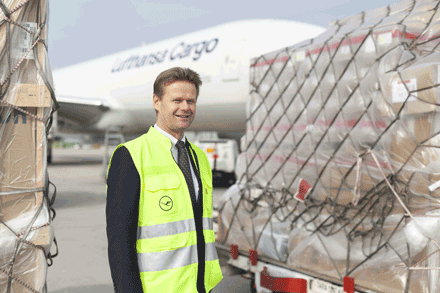 In
the period 2001-04, Gerber’s responsibilities shifted
to direction of the D-check program, which sought to consolidate
corporate earnings. During the eight years starting in 2003,
he served as Lufthansa spokesman for the Air Transport Initiative
for Germany. At the same time, he was responsible for strategic
corporate development. Then came a five-year period (2004-09)
in which he headed corporate industrial relations and social
security. In
the period 2001-04, Gerber’s responsibilities shifted
to direction of the D-check program, which sought to consolidate
corporate earnings. During the eight years starting in 2003,
he served as Lufthansa spokesman for the Air Transport Initiative
for Germany. At the same time, he was responsible for strategic
corporate development. Then came a five-year period (2004-09)
in which he headed corporate industrial relations and social
security.
The door to cargo opened for the
first time in 2009 when he was named to Lufthansa Cargo AG’s
executive board with responsibility for finance and human resources.
Three years later Gerber found himself on the executive board
of the passenger airline, heading human resources, IT, and Services
Division. He bounced back to the universe of air shipping with
his 2014 appointment as chairman of the executive board and
CEO of Lufthansa Cargo AG, plus chairing the Supervisory Board
of Lufthansa Cityline and holding membership on the Supervisory
Board of Albatros and Fraport.
Mark Twain is not unknown in Germany,
and it was Twain who observed that “work consists of whatever
a body is obliged to do, and play consists of whatever a body
is not obliged to do.” But in Gerber’s case, time
permitting, leisure translates to sports, especially running.
And, on other occasions, “a good game of chess.”
One of Gerber’s priorities
is direct and frequent contact with the industry’s intermediaries.
He strongly conveyed the impression that this was a basic element
in his job. A CEO, he said, “can only successfully lead
a company if he is always in touch with his customers.”
It is a business environment that contributes 8 percent to total
company revenue.
 In
a discussion covering the international air cargo market, Gerber
said that tonnage was “fiercely contested. The field of
competition is marked by enormous oversupply, price dumping,
and the creation of huge fleets by, in some cases, strongly
subsidized carriers.” Generating reasonable margins is
a tough occupation. Asserting that “complaining is no
strategy,” Gerber said the carrier is bearing down hard
on its strengths, investing in its product, and winning customer
recognition of Lufthansa as the “best choice.” Is
this strategy working? Its 2014 profits topped the previous
year’s results by 25 percent. Freighter and belly cargo
revenues are roughly equal. In
a discussion covering the international air cargo market, Gerber
said that tonnage was “fiercely contested. The field of
competition is marked by enormous oversupply, price dumping,
and the creation of huge fleets by, in some cases, strongly
subsidized carriers.” Generating reasonable margins is
a tough occupation. Asserting that “complaining is no
strategy,” Gerber said the carrier is bearing down hard
on its strengths, investing in its product, and winning customer
recognition of Lufthansa as the “best choice.” Is
this strategy working? Its 2014 profits topped the previous
year’s results by 25 percent. Freighter and belly cargo
revenues are roughly equal.
Is Gerber disturbed by reports
of air shippers returning to surface modes? The airline head
replied candidly: “Air cargo is, and always will be, a
market for certain goods—goods that either need to be
transported fast, or are critical for production and have a
high value. For these products air freight is and will remain
the only reasonable mode of transport.”
Do Lufthansa’s current plans
include cargo-facility activity at one or more airports? His
answer was quick, as if he had been waiting for the question.
The focus is on the “home hub, Frankfurt.” Along
with other firms, have developed the Air Cargo Community Frankfurt
the objective of which is to “join forces to strengthen
Frankfurt as an air cargo hub, noted for its strategic geographical
location.”
Gerber’s voice gained in
drive and enthusiasm, stressing Germany’s high position
as an exporting nation. In his telling, Frankfurt is Europe’s
No. 1 logistics hub. Gerber ultimately was careful to point
out that the airline also invests regularly “in our infrastructure
at other locations that are vital to the airline.”
| 
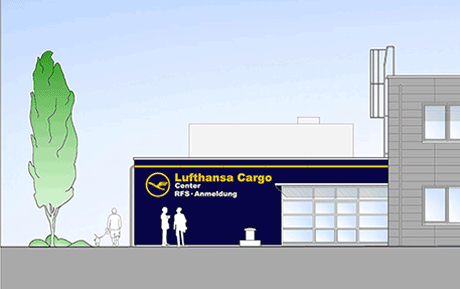 “Cargo
facilities never die, they just find another commodity.” “Cargo
facilities never die, they just find another commodity.”
All people older than an MD-88 can recall
a time when cargo facilities were not much more than former
hangars used for heavy maintenance and other tasks.
We can recall when Hangar 12 at JFK
was utilized for both air cargo and B707 C Checks back
in the day.
But then came the super-air cargo terminals,
like the giant land-swallowing facility Lufthansa operates
at Frankfurt, which opened in 1982.
Well the planners that created Lufthansa
Cargo’s Frankfurt facility must have done something
right because apparently the venerable set up is okay
to operate into the future; an expected move to build
a new cargo center for FRA, where 80 percent of all Lufthansa
cargo is handled, has been put on ice “for at least
two years,” as we learned last week.
But the venerable Frankfurt hub will
also receive “necessary enhancing measures”
according to the announcement.
We asked Lufthansa to elaborate on the
enhancements and the reply was that news would be forthcoming.
So while the “LCCneo” plan
remains in the future as the carrier assesses the landscape
and grows more efficient in the air (having added a stable
of new B777 freighters to the fleet), positive words flow
from the airline:
“Air cargo is a core business,”
is heard again and again.
“‘LCCneo’ is a significant
building block of our ‘Lufthansa Cargo 2020’
strategy for the future,” said Peter Gerber, chairman
of the Lufthansa Cargo AG executive board, while pointing
to some pluses.
“Five modern Boeing 777 freighters
already fly for Lufthansa Cargo, the modernization of
our IT for handling will be completed this year, and we
are excited about our close cooperation with ANA Cargo
on routes between Japan and Europe,” Mr. Gerber
said.
We recall a retrofit Lufthansa applied
in Frankfurt just a couple years back that modernized
their cool handling facility (see video), so as they say:
“There is life in the old girl yet.”
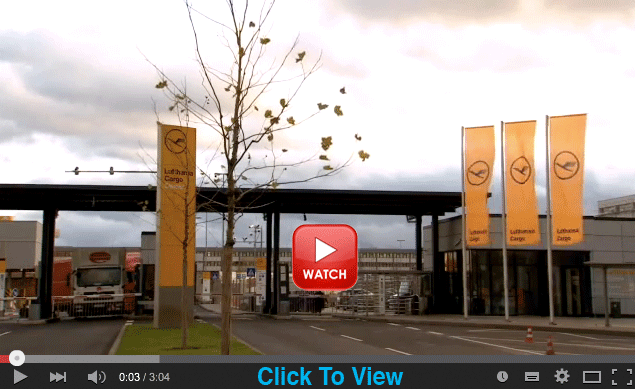
From our vantage point, the ways things
happen in the airline business can often not only fill
the bill, but also exceed the need.
Take the MD 88s mentioned above.
Although the last one was delivered
in 1994 and more than 1,100 of the last variant of the
DC-9 was supposed to disappear by now, some new and amazing
2015 cockpit technology refits will now allow carriers
that still fancy the airplane to continue at least another
five years.
What goes around comes around.
Geoffrey/Flossie
|
The question
of cargo security produced a somewhat lengthy statement directed
at the heart of the subject. He declared:
“The level of air cargo security has increased enormously
over the past few years, and I think it is fair to say that
Lufthansa Cargo contributed strongly to this development. Of
course, it is clear that we will make every effort to further
improve our security standards wherever possible. But it is
also important to point out that additional requirements—for
example, those imposed by public authorities—must also
be feasible in practice. Unfortunately, this was not always
the case in the past.”
In last year’s closing month, Lufthansa Cargo and Japan’s
biggest air carrier, All Nippon Airways, launched an air cargo
joint venture between Japan and Europe. Gerber hailed the alliance
as a “great step for our customers” who would benefit
from an improved network.
Despite renewed deadlines for
an industry free of paperwork, Gerber expressed optimism that
e-airwaybill will be developed and implemented by the end of
2015.
With the reins of Lufthansa Cargo
in his hands, would he favor establishing air cargo economics
as a special course in universities or business schools? Gerber
declared that “as a company” LH is doing a great
deal in “the development of young people and supporting
many university projects.” He brought forth the example
of guest lectures or assisting in the development of academic
courses. Add to the foregoing the airline’s offer to more
than a score of young people “an opportunity every year
to train with Lufthansa Cargo, frequently leading to recruitment.”
The topic brought to Gerber’s
mind his earlier years with human resources management. The
development of staff members has become “a matter close
to my heart.” At Lufthansa, he continued, there is a tradition
to “fill most of our important management positions with
our own staff.”
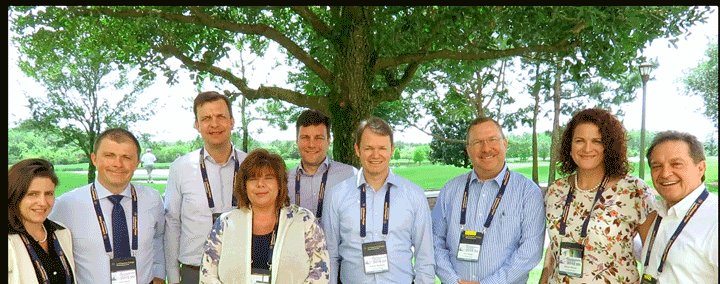
Lufthansa Cargo US A team takes
a break from non-stop, face-to-face meetings to enjoy the
cool shade of a friendly tree in the hotel garden at the
25th Annual CNS Partnership in Orlando, Florida, two weeks
ago.
Pictured (L to R) Gabriella Galantis, Director US Midwest
and Canada at Lufthansa Cargo; Uwe Glunz, Regional Director
USA West, Mexico & Central America; Alexander Karst,
Dorector Sales & Handling USA Northeast and Mid-Atlantic;
Karen Earp, Global Account Manager Lufthansa Cargo;Gunnar
Loehr, Regional Director South America Caribbean and Florida;
Achim Martinka, Vice President The Americas; Carl A. Unger,
Director USA South; Alison Ricker, Head of Global Accounts
and Ron Sanford, Global Key Account Manager The Americas. |
Traditionally
in this series of interviews, I request the interviewee identify
three persons who most influenced his career. Gerber resisted
the request, holding that in the space of the last 23 years,
his many contacts and friendships in the aviation world served
to mold his professionalism. If he had to boil the request down
to a single person, “it is clearly my wife, Annette,”
with whom he has two children.
Richard
Malkin
malkin101@aircargonews.com
|
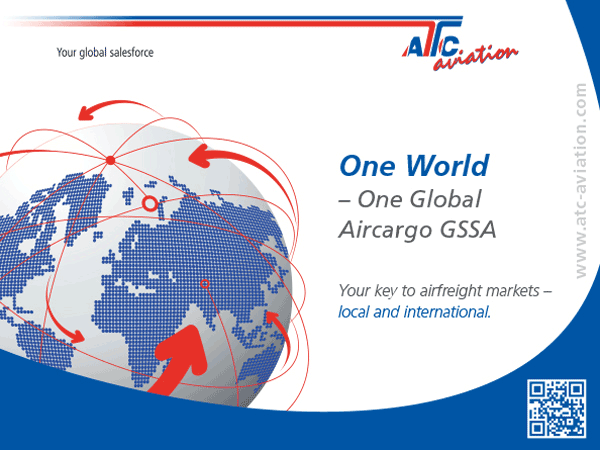

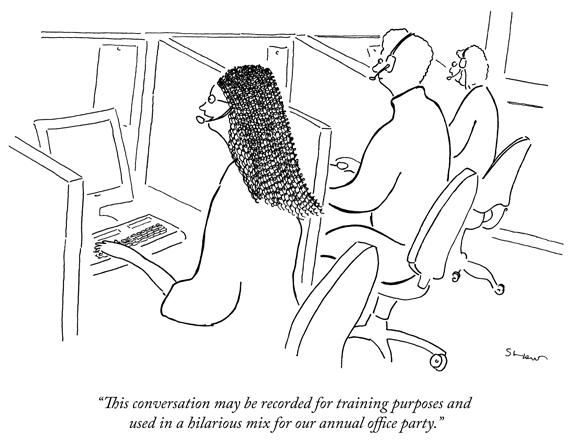
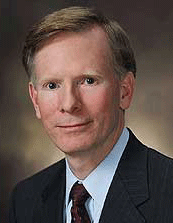 And
the awards just keep on coming . . .
And
the awards just keep on coming . . .
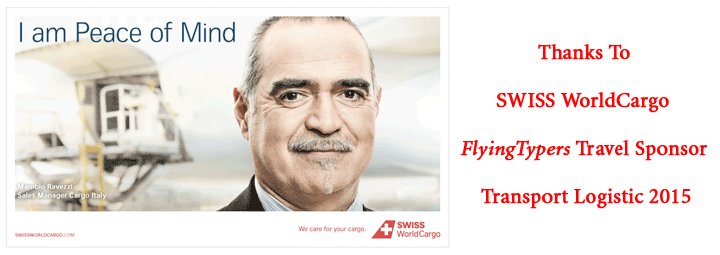






 In
the period 2001-04, Gerber’s responsibilities shifted
to direction of the D-check program, which sought to consolidate
corporate earnings. During the eight years starting in 2003,
he served as Lufthansa spokesman for the Air Transport Initiative
for Germany. At the same time, he was responsible for strategic
corporate development. Then came a five-year period (2004-09)
in which he headed corporate industrial relations and social
security.
In
the period 2001-04, Gerber’s responsibilities shifted
to direction of the D-check program, which sought to consolidate
corporate earnings. During the eight years starting in 2003,
he served as Lufthansa spokesman for the Air Transport Initiative
for Germany. At the same time, he was responsible for strategic
corporate development. Then came a five-year period (2004-09)
in which he headed corporate industrial relations and social
security. In
a discussion covering the international air cargo market, Gerber
said that tonnage was “fiercely contested. The field of
competition is marked by enormous oversupply, price dumping,
and the creation of huge fleets by, in some cases, strongly
subsidized carriers.” Generating reasonable margins is
a tough occupation. Asserting that “complaining is no
strategy,” Gerber said the carrier is bearing down hard
on its strengths, investing in its product, and winning customer
recognition of Lufthansa as the “best choice.” Is
this strategy working? Its 2014 profits topped the previous
year’s results by 25 percent. Freighter and belly cargo
revenues are roughly equal.
In
a discussion covering the international air cargo market, Gerber
said that tonnage was “fiercely contested. The field of
competition is marked by enormous oversupply, price dumping,
and the creation of huge fleets by, in some cases, strongly
subsidized carriers.” Generating reasonable margins is
a tough occupation. Asserting that “complaining is no
strategy,” Gerber said the carrier is bearing down hard
on its strengths, investing in its product, and winning customer
recognition of Lufthansa as the “best choice.” Is
this strategy working? Its 2014 profits topped the previous
year’s results by 25 percent. Freighter and belly cargo
revenues are roughly equal.
 “Cargo
facilities never die, they just find another commodity.”
“Cargo
facilities never die, they just find another commodity.”


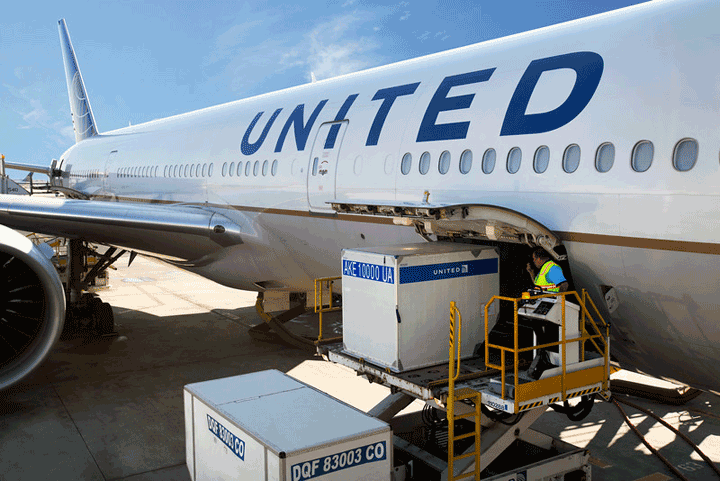

 “We
all need to communicate better, and must discipline ourselves
to focus on building consistent understanding across all groups
and functions.
“We
all need to communicate better, and must discipline ourselves
to focus on building consistent understanding across all groups
and functions.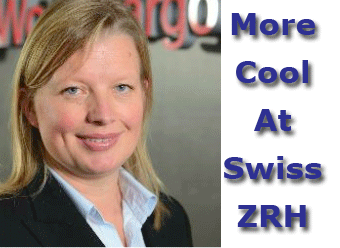
 FOUR
DECADES
FOUR
DECADES